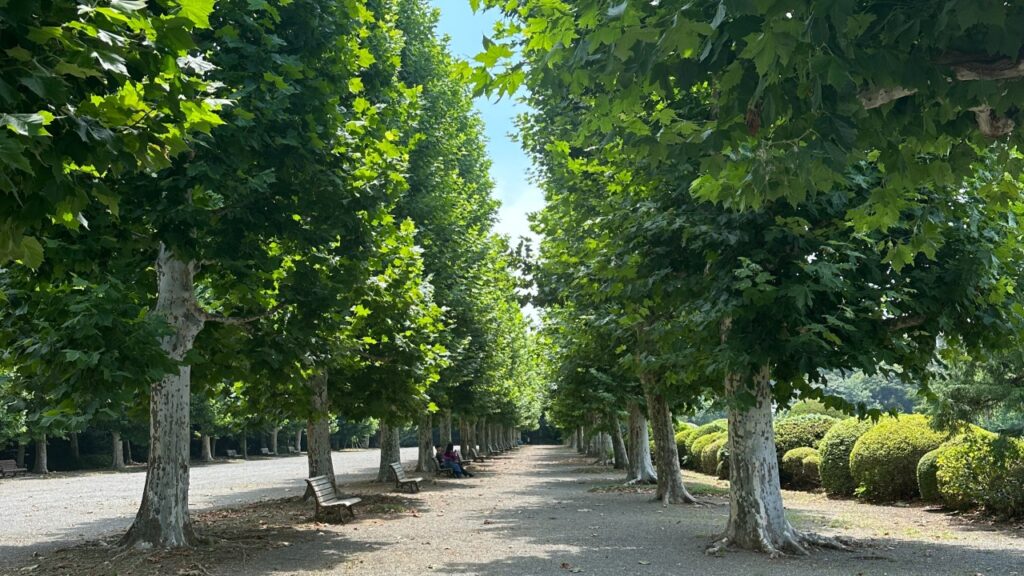A few weeks ago, while sitting on the porch beneath an ebony sky dotted by luminous stars, I found myself rapt in a painfully raw conversation with a loved one about capitalism. They recently graduated, and we were discussing the myriad ways our current sociopolitical climate has complicated the once-thrilling transition between college and career.
“What’s the point?” my loved one huffed. “The planet is dying. We’re witnessing a present-day genocide. Wealth is concentrated at the top while we fool ourselves into thinking that our actions make a difference. The government is wrecked. I don’t want to invest in a broken system. I literally don’t know what to do.” They were perched at the very edge of their seat—knees bouncing frantically, arms waving in the air. I wished I could take it all away—the bone-deep hopelessness that started as flippancy and became unrestrained tears.
A few days later, while four of us basked in the Florida sun, a family member received a long text from his thirty-year-old about why he shouldn’t visit states that promote bigotry and actively work to erase people. The illegality, the inhumanity, the manipulation…the complete and utter hypocrisy. My family member glanced at me, shaking his head. “These kids,” he muttered.
“I get them,” I responded flatly. I didn’t make eye contact. I just dug my toes into the sand and scanned the miles-long coastline of this slice of a state with problematic policies. I counted more than seven shades of blue and green. Nine if you add the sky.
“Florida doesn’t deserve Florida,” I said, to emphasize the point.
As I mulled over both passionate pleas for a more just and restorative existence, I reflected on my own youth. Was I this unyielding about my beliefs and values when I was their age? If so, when did that change? If not, what was different then—about the world? About me?
I’ve always harbored a strong sense of fairness. In fact, it was the impetus behind my most frequently uttered statement as a child: It’s not fair!
Decades passed, and in that time, I led large, interdisciplinary teams. I got married and raised children. I ran businesses. And through these many roles and the tradeoffs that came with them, I learned the meaning of a very important word.
Dilemma: a situation in which a difficult choice must be made between two or more alternatives.
When we’re young, there’s right and wrong. Good and bad. Up and down. Mine and…mine. As we grow older and wiser, we learn that life is not so binary. Right and wrong weave in and out of circumstances and dependencies. Good and bad meet justification and perspective. Up and down find “through” and “around.” And mine becomes ours. Almost everything can change shape depending on how you look at it, and choices become more about the tenuous relationship between risk and reward.
For my porch mate who is actively raging against the machine, the difficult choice is between contributing to a capitalist system and being perpetually dependent. For my family member—in that moment, anyway—the choice was between indulging his child’s justifiable concerns and dismissing them in exchange for the few moments of peace he’d found in that imperfect state.
For me, the core dilemma—which has to do with when and how to wield my ‘sword”—holds ever-growing tension. On one side is a deep sense of responsibility to feed all things future and fair and to raise my voice and fists until I’m hoarse and my arms are limp. But on the other side? The primal need to keep going. The self-responsibility to quell my anxiety so I don’t come undone because people depend on me. And the call to keep creating, which is impossible for me to do from the brink of despair.
I can’t drown myself in breaking news or think pieces every day. I don’t leap headfirst into every philosophical debate. I do what I can with what I have, and that work is often invisible. It happens in small rooms and one-on-one and behind many scenes. This is how I move, and even as some demand to see receipts, I know my ways have value.
Only when I’m centered can I meaningfully contribute to anything that matters. Balance, or as I think of it—harmony—is not a luxury many Black women have been afforded. But it’s something every person deserves. And though chaos swirls around us, we get to redefine the rules, especially now when the rulebook is fast becoming obsolete.
I understand the purist’s heart. I too believe that if we give injustice an inch it will take a yard. That if we’re silent in the face of horrors, we unconsciously yield to them. That we must “stand for something or we’ll fall for anything.” But we can’t stand for everything all at once.
My loving guidance is this:
Feel the weight of the macro-environment. It’s heavy, and yes, you are needed there. But guard your micro-life. Know what you must do to be whole—to have enough energy and resources to survive, and to be ready for the fights worth fighting. Don’t let anyone convince you there is only one way to be a good person right now, or that you yourself must suffer to be on the “side” of the suffering.
Those who suffer need strong towers. Those who have little need caring people with a lot to give. Those without power need powerful people to speak up for them. When anyone with an open heart and a generous spirit is purposeful about their path, we all benefit. So be open. Be purposeful. Be generous. Because when you get down to it, that’s what it really means to be pure.
Tara Jaye Frank
Image: Shinjuku Gyoen National Garden, Tokyo, Japan
